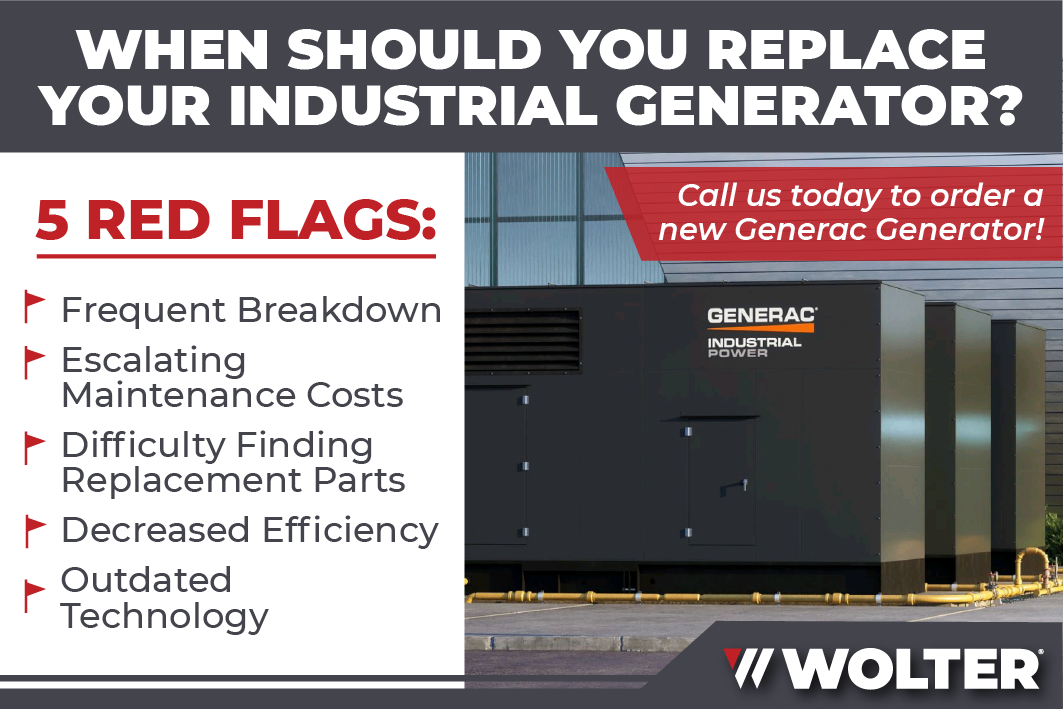
- Share
Knowing When to Replace Your Industrial Generator
Industrial Generators are essential for ensuring uninterrupted power supply in various facilities, from manufacturing plants to data centers. However, like any piece of equipment, they have a finite lifespan and require timely replacement to ensure reliability. Here's how you can determine when it's time to replace your industrial generator.
Understanding the Lifecycle of Your Generator
The average lifecycle of an industrial generator is about 15 years. This timeframe can vary based on factors such as usage, maintenance, and environmental conditions. Knowing the age of your facility's standby generator is the first step in assessing its replacement needs.
Signs It's Time to Replace Your Generator
- Frequent Breakdowns: If your generator is experiencing frequent failures, it may be reaching the end of its lifecycle. Continuous repairs are not only costly but also signal underlying issues that may not be fixable.
- Escalating Maintenance Costs: As generators age, the cost of maintaining them can increase significantly. If you notice a sharp rise in maintenance expenses, it might be more cost-effective to invest in a new unit.
- Difficulty Finding Replacement Parts: Older generators may have parts that are no longer readily available, making repairs challenging and expensive. If sourcing parts is becoming a problem, it’s a clear indicator that replacement should be considered.
- Decreased Efficiency: Over time, generators can become less efficient, leading to higher fuel consumption and increased operational costs. Upgrading to a newer model can enhance efficiency and reduce expenses.
- Outdated Technology: Advances in generator technology can offer significant benefits, including improved reliability, better fuel efficiency, and enhanced monitoring capabilities. If your generator lacks modern features, an upgrade could provide substantial advantages.
Regular maintenance is crucial to extend the lifespan of your generator and ensure it operates at peak performance.
- Scheduled Maintenance: Regular check-ups and service prevent unexpected failures.
- Load Banking: Testing your generator under load conditions to ensure it can handle the required power demands.
- NFPA-110 Compliance Testing: Ensuring your generator meets the National Fire Protection Association's standards for emergency and standby power systems.
Contact us today to schedule an audit of your standby power systems and ensure you’re always prepared for the unexpected.

